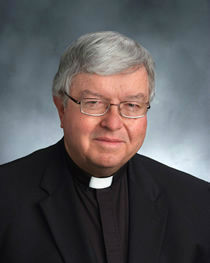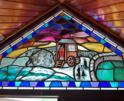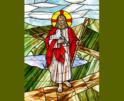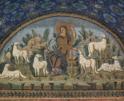
Faith
Prayers for the deceased have been a strong and consistent part of Christian life -- at the bedside when one has died, at wake services, at funeral and anniversary Masses and burial rites -- even though we don't presume to know exactly how they work.

Doyle
Q. Since we believe that judgment takes place at the time of death, why do we pray for the dead? Prayer is supposed to change us, not God. Are we to believe that extra prayers will change his mind and get us into heaven faster? (Northampton, Pennsylvania)
A. We do, as you say, believe that a divine judgment takes place at the time of death. But part of the Christian faith is the belief in purgatory, the belief that for some individuals there will be required a period of "purification" -- a chance to "clean up from" and "make up for" past sins and imperfections before entering the eternal embrace of the Lord in heaven.
It is that period of purification that the church believes can be reduced by the prayers of those still living on earth. As the Catechism of the Catholic Church says: "From the beginning the church has honored the memory of the dead and offered prayers in suffrage for them, above all the eucharistic sacrifice, so that, thus purified, they may attain the beatific vision of God" (No. 1032).
Our belief is rooted in the Scriptures, as far back as the Second Book of Maccabees in the Old Testament, where Judas Maccabeus prayed for his comrades slain in battle that they might be freed from sin and obtain "the splendid reward that awaits those who had gone to rest in godliness" (2 Mc 12:45).
Prayers for the deceased have been a strong and consistent part of Christian life -- at the bedside when one has died, at wake services, at funeral and anniversary Masses and burial rites -- even though we don't presume to know exactly how they work. Death and its sequel, including judgment, will always be a mystery to us for as long as we are on this side of heaven.
I do not think, though, that our prayers for the deceased "change God's mind" -- rather, God, who knows all things, has decided in advance to favor the deceased with mercy based on his foreknowledge that we would offer prayers on their behalf.
And as for the question you did not ask me: "What happens if we pray for someone who's already in heaven?" I can only believe that those merits will be awarded to other souls still in purgatory (or perhaps even to ourselves).
Q. I have read that miracles are required before someone can be proclaimed a saint. Can you tell me more about the process and perhaps give me some examples of miracles for saints recently canonized? (Roanoke, Virginia)
A. The process for canonization has been developed by the church over time -- with increasing rigor. The first Christian saints were martyred for their faith in persecutions during the church's earliest centuries.
Later, Christians started to recognize as saints those who had lived virtuous lives even though they had not been put to death for their beliefs, and church leaders realized the need for a more formal authentication. (In the 12th century, Pope Alexander III wrote to the King of Sweden castigating the Swedish people for venerating an imbibing monk who had been killed in a drunken brawl.)
The current steps toward canonization provide for one miracle to be documented for beatification and another one for canonization. Miracles obtained through someone's intercession are regarded as proof that the person is in heaven and able to intervene with the Lord. The general procedures for canonization were outlined by St. John Paul II in an apostolic constitution issued in 1983.
The pope, as the church's supreme legislator, can and occasionally does dispense from the requirement on miracles, especially when the deceased is universally recognized for holiness. (This was done for Pope John XXIII when he was canonized in 2014.) Reported cures are scrutinized thoroughly by a panel of medical experts who must conclude that there is no natural explanation to explain the recovery of health.
When St. John Paul II was canonized (also in 2014), a guest at the ceremony was a woman from Costa Rica who had recovered inexplicably from a brain aneurysm after praying to that deceased pontiff. In September 2016, St. Teresa of Kolkata was canonized after a Brazilian man with multiple brain tumors was healed when loved ones pleaded to Mother Teresa on his behalf.
- - -
Questions may be sent to Father Kenneth Doyle at askfatherdoyle@gmail.com and 30 Columbia Circle Dr. Albany, New York 12203.
- Father Kenneth Doyle is a columnist for Catholic News Service
Recent articles in the Faith & Family section
-
Popular devotions and the liturgyFather Robert M. O’Grady
-
The Fight for Our FaithMaureen Crowley Heil
-
The shepherd's voiceScott Hahn
-
Scripture Reflection for April 21, 2024, Fourth Sunday of EasterJem Sullivan
-
The new Temple: How Easter changes religionDr. R. Jared Staudt


















